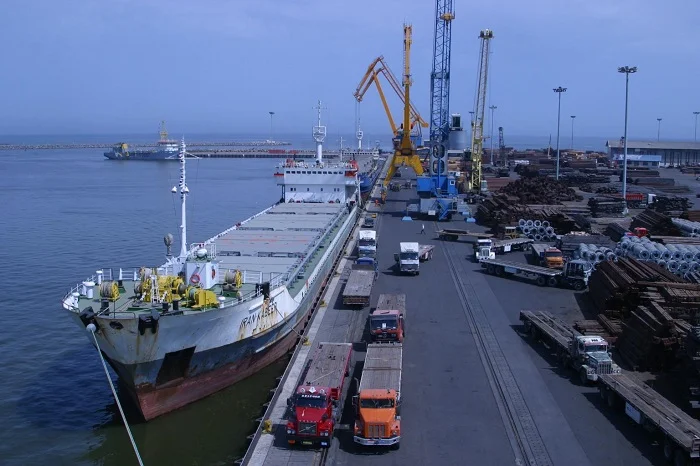India and Uzbekistan have decided to push for expanding the Chabahar port network to connect South and Central Asia.
On Friday, Deputy National Security Advisor (NSA) Vikram Misri sat down with Uzbekistan's Deputy Minister of Foreign Affairs Vladimir Norov in Tashkent to discuss "new opportunities" to realise the huge trade-economic, investment, transport, and transit potential of the two historically close regions.
The two have known each other for a long time as both were based in Beijing at the same time – Norov as the head of the Shanghai Cooperation Organization (SCO) and Misri as India's ambassador to China.
Visiting Uzbekistan to participate in the meeting of the SCO Security Council Secretaries, Misri assured Norov that India saw Uzbekistan as the key to New Delhi's broader partnership with Central Asia.
The two also discussed Afghanistan's turbulent transition. India lauded Uzbekistan's vision of using Afghan territory for transportation, and energy projects that would connect Central and South Asia – initiatives that would in turn help develop Afghanistan's domestic economy.

"I had very fruitful talks with my friend Vikram Misri, Deputy National Security Adviser to the Prime Minister of India. We discussed a wide range of issues on the Uzbek-Indian agenda, as well as interaction within the framework of multilateral structures, in particular the SCO," tweeted Norov after the meeting.
New Delhi has for long been batting for the improvement of the transport and logistics architecture of the Eurasian region and continues to highlight the important role that the Shahid Beheshti Terminal at Chabahar Port plays as a commercial transit hub for the landlocked countries in Central Asia.
Uzbekistan also wants to extend its railway connectivity with Pakistani ports. But off late there has been considerable interest in routing the project towards the Iranian port of Chabahar as well.
Last December, during the second Trilateral Working Group meeting between India, Iran, and Uzbekistan on the joint use of Chabahar Port, India emphasised linking of the Chabahar Port to the International North-South Transport Corridor (INSTC).

"We need to create a mechanism that allows Uzbekistan to connect to Chabahar for the transit of goods so that other Central Asian countries can access Chabahar," said Sanjeev Ranjan, Secretary of India's Ministry of Ports, Shipping and Waterways, during the virtual meeting.
A month later, at the first India-Central Asia Summit on January 27 this year which was the first engagement of its kind between India and the Central Asian countries at the level of leaders, it was emphasised that connectivity projects deserve "priority attention" and could be a "force-multiplier" for trade and economic cooperation between India and Central Asian countries.
At the meeting, which was hosted by Prime Minister Narendra Modi and attended virtually by the Presidents of Kazakhstan, Kyrgyzstan, Tajikistan, Turkmenistan, and Uzbekistan, the leaders also supported India's proposal to include the Chabahar Port and noted Turkmenistan's proposal to include the Turkmenbashi Port within the framework of INSTC.
"From Indian point of view, I would like to emphasise that Central Asia is central to India's vision of an integrated and stable extended neighbourhood," PM Modi had said while addressing the Central Asian leaders.




















